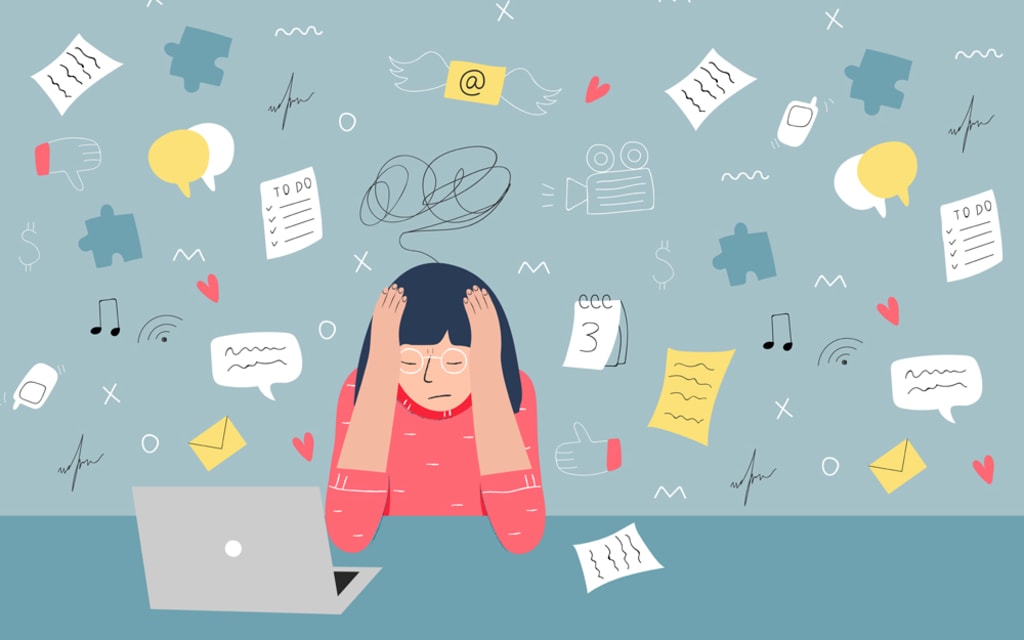Understanding Stress: Debunking Common Myths 🧠
Discussing stress myths

Stress is a natural part of life that helps us respond to threats and challenges. However, many myths still exist around stress that can lead people to view it only negatively or mishandle its effects. In this article, we will explore some commonly held beliefs about stress and provide insight from stress experts to separate fact from fiction. While it may seem appealing, being completely stress-free is neither achievable nor healthy. As stress experts Stephanie Cook and Terry Solero explain, a certain level of stress response called "fight or flight" has helped humans survive encounters with threats in our evolution. Our bodies developed this capability to either confront or quickly escape from dangers like encountering a mother bear and her cubs on a hike. However, too much prolonged stress takes a toll. When our stress response system remains continually triggered over time, it puts us at risk for poor health outcomes physically and mentally. So rather than seeking a stress-free existence, the goal should be welcoming helpful stresses that motivate us while mitigating harmful stresses through adaptive coping. A presence of stress hormones in moderation can actually enhance performance for tasks that cause positive excitement, like public speaking engagements. Protecting children from all stressors is known as "helicopter parenting" and can backfire according to the experts. While parents have good intentions, removing challenges and distressing experiences denies kids opportunities to build resilience at a young age. When constantly shielded, children may struggle with anxiety and lack skills to self-soothe when distressed. The appropriate approach is to acknowledge children's emotions while still allowing them to work through difficulties with a support system. Facing mild stresses helps wire their brains to cope adaptively as they grow. Parents can make sure kids feel heard and validated rather than fixing everything for them. Over time, this teaches resilience which serves individuals better than constant protection from life's inevitable stresses. Taking a break does provide temporary relief but will not resolve deep-rooted burnout on its own, the psychologists explain. Burnout stems from prolonged stress, exhaustion, and feeling overwhelmed by responsibilities beyond one's capacity. While vacations prevent burnout symptoms in the moment, feelings are likely to return after the trip ends unless the underlying issues are addressed. True recovery involves removing the aspect of life causing burnout itself or developing healthier daily habits shown to combat stress long-term. Consistently sticking to routines like quality sleep, nutrition, exercise, mindfulness meditation, and pleasurable activities better manage burnout than brief fixes alone. Making permanent lifestyle adjustments aims to prevent burnout recurrence rather than just treating its symptoms temporarily. Whether stress impacts us positively or negatively hinges greatly on context and mindset. Stress experts clarify that stress responses serve an important purpose driving behaviors like working hard towards goals when motivated. Anticipating excited events like weddings can induce stress that boosts rather than hinders performance through eagerness versus distress. Not all stress should be avoided. Research shows a threshold level may actually enhance cognition and productivity. The key is controlling interpretation of what causes us stress. Certain stimuli activate stress responses due to their perceived threatening nature when appraised negatively. But evaluating the same triggers in a challenging yet controllable light prompts hardiness instead of harm. Developing flexible thinking helps optimize use of the stress response for gains rather than let it universally dictate losses in our lives. While wartime trauma was long the main focus, post-traumatic stress disorder results from any emotionally overwhelming event whether large natural disasters or more common traumas. Experts acknowledge PTSD risk exists following intimate partner violence, criminal acts, accidents, medical trauma, and even discrimination through 'microaggressions.' Over half of Americans face at least one traumatic experience that could potentially lead to PTSD. Diagnosis hinges not on a specific trigger but displaying severe symptoms like reliving the event through intrusive thoughts or nightmares, avoiding reminders, emotional numbing, and exaggerated startle responses. Most trauma survivors do not get PTSD, though awareness is growing of non-military causes. Researchers now design broader prevention efforts addressing underserved populations suffering less acknowledged but still deeply distressing traumas. Using food to temporarily alleviate feelings of stress forms an unhealthy feedback loop if relied on regularly without alternative coping. The psychologists acknowledge occasional stress-induced indulgences pose little harm alone. However, continuously eating for emotional rather than physical reasons when distressed opens the door for overeating and weight gain. This makes stressors feel more difficult to handle while introducing new health concerns. Mindful strategies aim to short-circuit relying on unhealthy behaviors to self-soothe. Learning to sit with uncomfortable emotions allows their natural passing without masking through compulsions like bingeing. While dieting should never substitute for developing coping skills, balancing stress responses supports well-being physically as well as mentally in the long-run. Everything serves us best in moderation, including turning to food for support alone. In conclusion, stress represents neither an unmitigated bad nor something entirely avoidable. Our very survival depends on stress response systems that evolved to protect us. But perpetually high stress takes its toll, and certain stress myths prevent optimizing our resilience. Distinguishing facts from fiction empowers managing what we can versus dwelling in distress over events beyond personal control. Recognizing stress as natural yet malleable sets the stage for improving overall wellness and performance throughout everyday challenges life presents.
About the Creator
Rakindu Perera
I’m a highly successful content writer with articles recognised by huge varieties of organisations. Also being in completion of a Bachelors Degree in Mechanical Engineering, I have the upmost know when it comes to exteme applications.
Enjoyed the story? Support the Creator.
Subscribe for free to receive all their stories in your feed. You could also pledge your support or give them a one-off tip, letting them know you appreciate their work.






Comments
There are no comments for this story
Be the first to respond and start the conversation.